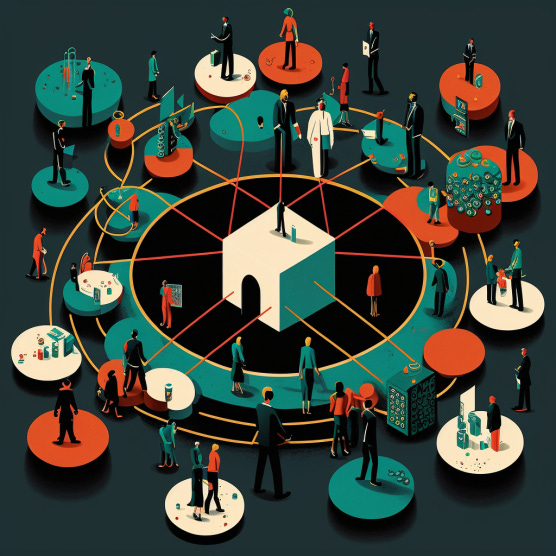It’s Tuesday which means it’s time to explore the world of crypto. Today, I want to write about DAOs - a new way to organize and work towards a common goal using blockchain as a mechanism to enforce decisions and set rules.
DAO stands for Decentralized Autonomous Organization. It's 'decentralized' because it runs on the blockchain and gives decision-making power to stakeholders. It's 'autonomous' because it uses smart contracts to automatically trigger actions based on the number of votes or set rules. DAOs are basically internet-native organizations with a shared bank account. DAOs can work like companies, except everything is fully transparent. Every transaction and every decision is recorded on the blockchain and is publicly available.
Instead of company shares, DAOs have tokens. Typically, companies start out as startups and build up the product. Once the company reaches a certain level of maturity and wants to become fully decentralized - it creates tokens and distributes them to team members, investors, and early users. Not all crypto projects become a DAO, and not all DAOs are crypto companies.
For example, I'm a member of the ENS DAO. ENS or Ethereum Naming Service is similar to a website domain, but for crypto. Mine is firdavs.eth. If you ever wanted to send me crypto, you would just type in firdavs.eth instead of a complex 42-character wallet address. I bought this domain 2 years ago and was one of the early users of the product. ENS started as a startup and after several years decided to go fully decentralized and become a DAO. When that happened, all early users received ENS tokens based on how early they started using the service and the number of years they bought the domain for.



As a token holder and a member of the DAO, I have voting rights on all decisions of the DAO from what should be the company logo to how much we should charge, to whom we hire or fire. Once the voting period ends, the decision is automatically executed through smart contracts. As the DAO grows, so does the value of my ENS tokens. If at any time I want to cash out, I can sell my tokens through any of the exchanges.
That's one example of a DAO. Today, there are over 4,000 DAOs - they act as exchanges, invest in companies, support creators and even send people to space. DAOs are a new way to finance projects, create communities and share value. They are changing the way we build and run companies of the future.
If you found this essay helpful, consider sharing it with others.





